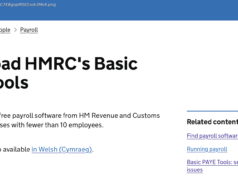Armed with various analyses of how users of the platform interact with and receive information from U. S. politicians and news outlets online, Twitter CEO Jack Dorsey plans to firmly refute accusations that the social network is inherently biased against conservatives or doing anything to silence their tweets.
Armed with various analyses of how users of the platform interact with and receive information from U. S. politicians and news outlets online, Twitter CEO Jack Dorsey plans to firmly refute accusations that the social network is inherently biased against conservatives or doing anything to silence their tweets.
In pre-written testimony, Dorsey—slated to appear before the House Energy & Commerce Committee on Wednesday—asserts it is a “foundational fact” that Twitter does not make decisions based on political ideology, but instead on what best serves the platform’s “health,” which Twitter defines as internal efforts to combat malicious activity across the service.
“Historically, Twitter focused most of our efforts on removing content against our rules,” says Dorsey, who is oft-criticized for doing too little to stave off threats aimed at, in particular, women, and racist threats targeting people of color. “Today, we have a more comprehensive framework that will help encourage more healthy debate, conversations, and critical thinking,” he adds.
While Republicans are expected to fixate on allegations of bias and censorship—citing, among other incidents, attempts by some of Twitter’s staff to ban right-wing conspiracy theorist Alex Jones—there’s no one particular topic Democrats plan to hone in on. One senior Democratic aide described the preparation by Democrats on the committee as a “choose your own adventure,” believing the majority’s excuse for holding the hearing is largely absurd.
Each lawmaker will only have four minutes to question Dorsey, who will appear earlier on Wednesday before the Senate Intelligence Committee alongside Facebook’s chief operating officer, Sheryl Sandberg, to discuss how foreign actors are attempting to use the respective platforms to spread propaganda.
In arguing that Twitter’s best interest is served by “keep[ing] all voices on the platform,” Dorsey cites internal research performed at the company last month. After analyzing all tweets sent by House and Senate lawmakers for 30 days, Twitter’s data scientists concluded that tweets by Republican lawmakers are viewed as often as their Democratic counterparts, according to Dorsey, “even after all filtering and algorithms have been applied by Twitter.”
In misleading statements last month, House Majority Leader Kevin McCarthy accused Twitter of censoring right-leaning voices; in particular, Fox News host Laura Ingraham. The California representative demanded that Dorsey “explain to Congress what is going on.” However, a screenshot McCarthy offered up as proof of this censorship clearly showed that McCarthy’s own personal settings caused an Ingraham tweet to not be visible—a fact for which he was relentlessly mocked.
Citing an inaccurate Vice News article, conservatives have clamored for GOP lawmakers to excoriate Twitter publicly for “shadowbanning” (or purposely suppressing) right-leaning voices, something the company has repeatedly said it does not do. Vice News incorrectly cited as an example of “shadowbanning” the fact that Twitter did not automatically suggest certain conservatives accounts in search results. (The term actually refers to the practice of making an account invisible platform-wide, something Twitter had not done.)
Dorsey addresses the controversy in his opening remarks:
Dorsey adds that the issue impacted globally some 600,000 accounts across the political spectrum and that the issue was resolved “within 24 hours.” Most of the accounts affected “had nothing to do with politics at all,” he said.
“An analysis of accounts for Members of Congress that were affected by this search issue demonstrate there was no negative effect on the growth of their follower counts,” says Dorsey, adding: “To the contrary, follower counts of those Members of Congress spiked.”
The accounts falsely described by Vice News as being “shadowbanned” were, in fact, not displayed in search results because Twitter had automatically excluded them for users who had activated the platform’s “quality filter.” This occurred, Dorsey explains, because the site’s algorithm found they had “a higher likelihood of being abusive.” Twitter deactivated the algorithm after determining it required a “higher level of precision,” Dorsey says.
According to Dorsey, Twitter partnered with Cortico, a nonprofit research center, and the Massachusetts Institute of Technology Media Lab to explore how best to inform the company’s commitment to Twitter’s “health.”
Cortico, which analyses how news is received and interpreted by specific communities, examining among other factors the so-called “echo chamber” phenomena, proposed an “initial set of health indicators for the United States,” Dorsey says, including:
In advancing its development of “health metrics,” Twitter is now partnering with experts at the University of Oxford and Leiden University, as well as other academic institutions, focusing on “informational echo chambers and unhealthy discourse on Twitter.” The project’s research, Dorsey says, will be published in full “in due course.” Twitter did not respond to a request for comment.
“Our service has enabled millions of people around the globe to engage in local, national, and global conversations on a wide range of issues of civic importance,” Dorsey adds. “We also partner with news organizations on a regular basis to live-stream congressional hearings and political events, providing the public access to important developments in our democracy.”
“The notion that we would silence any political perspective,” he adds, “is antithetical to our commitment to free expression.”
“Twitter has refined its detection systems,” says Dorsey, culminating in a “214 percent” increase in the number of accounts banned for violating platform manipulation policies. In the last several months alone, he says, Twitter “identified and challenged” between 8.5 and 10 million accounts each week suspected of producing spam.
“This includes many forms of automated account interactions and behaviors as well as attempts to mislead or deceive people,” he says.
Twitter has attributed some of this activity to the Internet Research Agency, a Kremlin-directed troll farm accused by U.
Home
United States
USA — software Twitter CEO to Call Bullshit on Claims of Anti-GOP Censorship Before Congress






